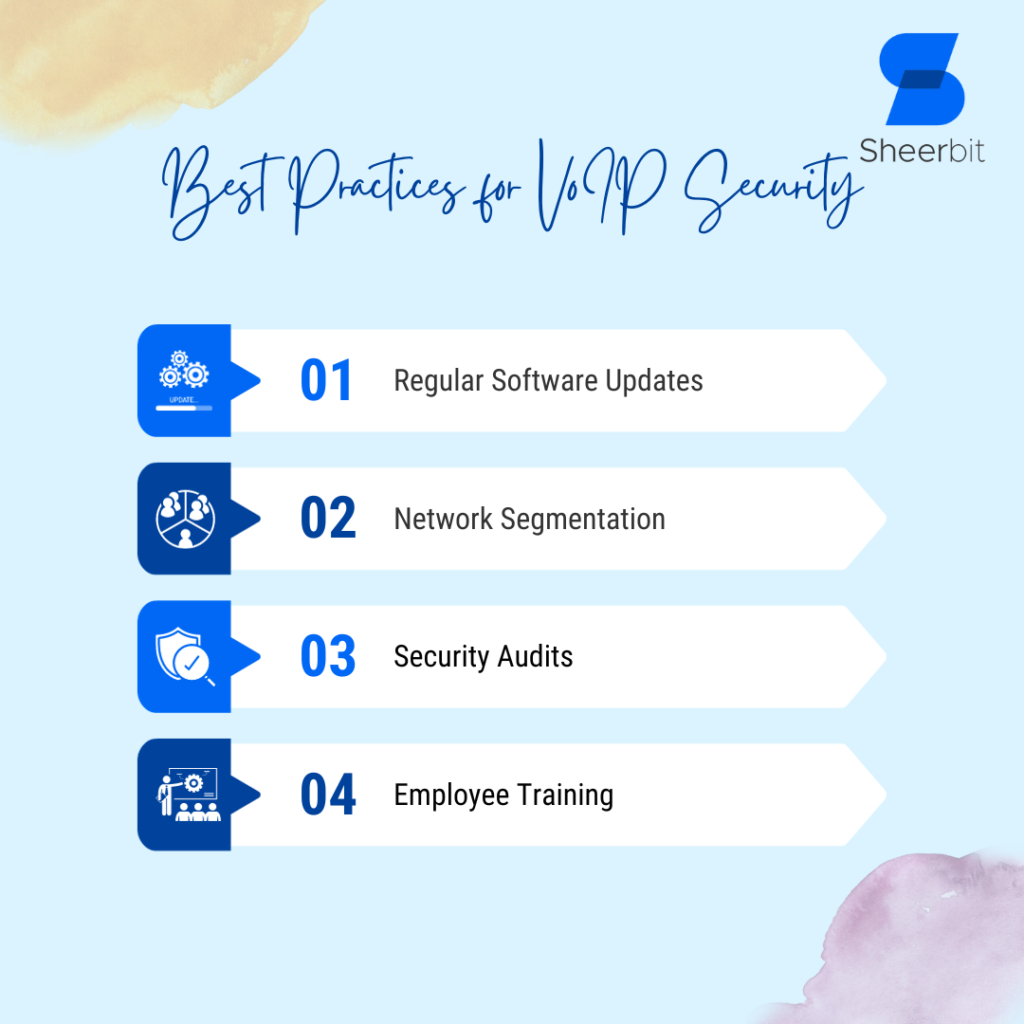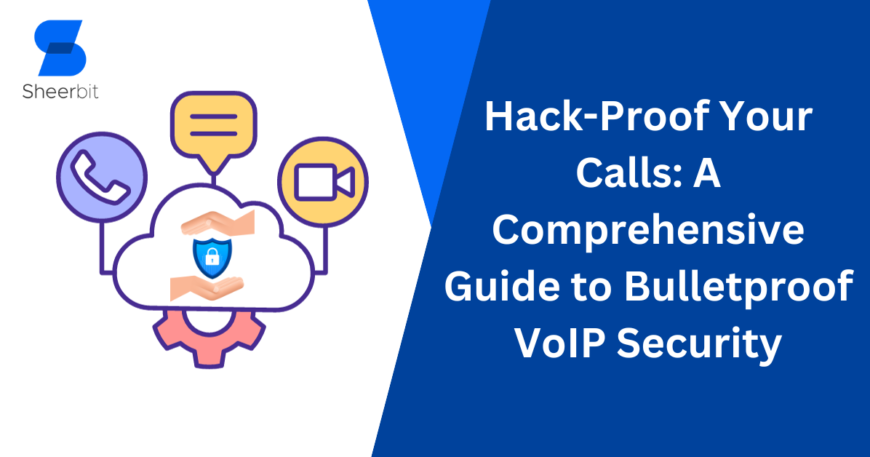In a time where digital communication rules, Voice over Internet Protocol, or VoIP, has become a vital tool for both individuals and companies. VoIP has transformed communication by enabling the ease of making calls via the Internet. It provides a flexible and affordable substitute for old phone systems. Its widespread usage has made seamless global networking and cooperation possible. But the very technology that makes us closer together also makes room for possible security risks. Strong VoIP security’s measures are essential as more and more enterprises use VoIP to transmit sensitive data and have private discussions. We’ll look at the relevance of VoIP security in this lesson and provide helpful tips on how to make your conversations hack-proof so that the revolutionary benefits of VoIP may be exploited without endangering the confidentiality and integrity of communication.
Understanding the Risks:
VoIP is not impervious to security vulnerabilities despite its efficiency. Voice data transmission over the Internet is vulnerable to a number of vulnerabilities by its very nature. VoIP systems may provide a number of risks, including call interception, which allows for the malicious acquisition of conversational content, and eavesdropping, which allows unauthorized parties to listen in on conversations. These flaws put private data at risk of being used maliciously by someone looking to gain illicit advantage of it. The hazards include call manipulation, unauthorised access to private talks, and even service disruption, which puts the dependability of communication channels at risk.
Securing your communication starts with identifying these possible risks. Businesses and individuals can proactively apply security measures to prevent risks associated with VoIP systems by being aware of the vulnerabilities in these systems. Taking a complete approach to VoIP security is necessary to make sure that any security breaches do not jeopardize the effectiveness and convenience of this communication technology. This includes strict access restrictions and strong encryption techniques.

Key Components of VoIP Security:
1. Encryption Protocols:
VoIP security is based on the use of robust encryption. Speech data can be encrypted during transmission to prevent unauthorised users from decoding it even in the event that it is intercepted. To further secure your communications, look for protocols such as Secure Real-time Transport Protocol (SRTP).
2. Firewall Configuration:
Your VoIP system is vulnerable to assaults, just like any other internet-connected equipment, if it is not well secured. It is essential to set up firewalls so that only authorized traffic is allowed. You remain ahead of any dangers; be sure you regularly update and check your firewall settings.
3. Access Control:
A basic security technique for your VoIP network is to restrict access. Make sure that only people have the authority to see and alter system settings. Access control is mostly dependent on user permissions, multi-factor authentication, and strong password regulations.
Best Practices for VoIP Security:
1. Regular Software Updates:
VoIP companies frequently release updates addressing security flaws. To improve overall system security and fix known vulnerabilities, you must keep your VoIP hardware and software up to date.
2. Network Segmentation:
By keeping your VoIP network apart from other internet-connected devices, security failures may be prevented. Segmenting your network reduces the paths available to prospective attackers, increasing the difficulty of them breaking into your VoIP system.
3. Security Audits:
Perform routine security audits in order to find and fix any possible weaknesses. Hire security experts to examine your VoIP system for vulnerabilities and make sure it can resist different types of online attacks.
4. Employee Training:
Human error continues to be a major factor in security breaches. Teach your staff the value of VoIP security, how to spot phishing efforts, and how to adhere to safe communication best practices.
Choosing a Secure VoIP Provider:
Give preference to VoIP service providers who place a high priority on security. Seek out suppliers who follow industry best practices, offer end-to-end encryption, and have a proven track record of rapidly resolving security issues.
Conclusion:
We must adapt our strategy for safeguarding communication channels to the changing digital environment. The dynamic realm of VoIP security necessitates constant modification in order to remain ahead of possible attacks. You can build a strong defence against VoIP security breaches and guarantee the confidentiality, integrity, and availability of your voice conversations by putting the tactics covered in this article into practice.
In today’s linked world, protecting your VoIP conversations is not an option—it is a need. Take proactive measures to make your VoIP system hack-proof so that you don’t leave your calls open to potential hackers. The fundamentals of VoIP security are universal, regardless of the size of your company.
Assess Your VoIP Security: Make a thorough assessment of the VoIP security’s mechanisms you have in place. Determine any possible weak points and places that need work.
Implement Encryption: Make sure that reliable protocols like SRTP and TLS are being used to encrypt your VoIP conversations. Your first layer of protection against illegal access and eavesdropping is encryption.
Train Your Team: Inform your staff of the value of VoIP security. Establish training initiatives to increase people’s knowledge of social engineering, phishing scams, and other such dangers.
Stay Informed: Get industry updates to remain up-to-date on the newest VoIP Security’s trends and threats. Knowledge is essential to keep one step ahead of any adversaries.
Consult with Experts: Seek advice from cybersecurity professionals if you have any doubts regarding the security of your VoIP system. They may offer advice that is specific to your needs and potential dangers.
Recall that securing your private conversations requires a secure VoIP system, which is one of many options. Give us a call right now to make sure that, in an ever more connected world, your calls stay private and safe.





